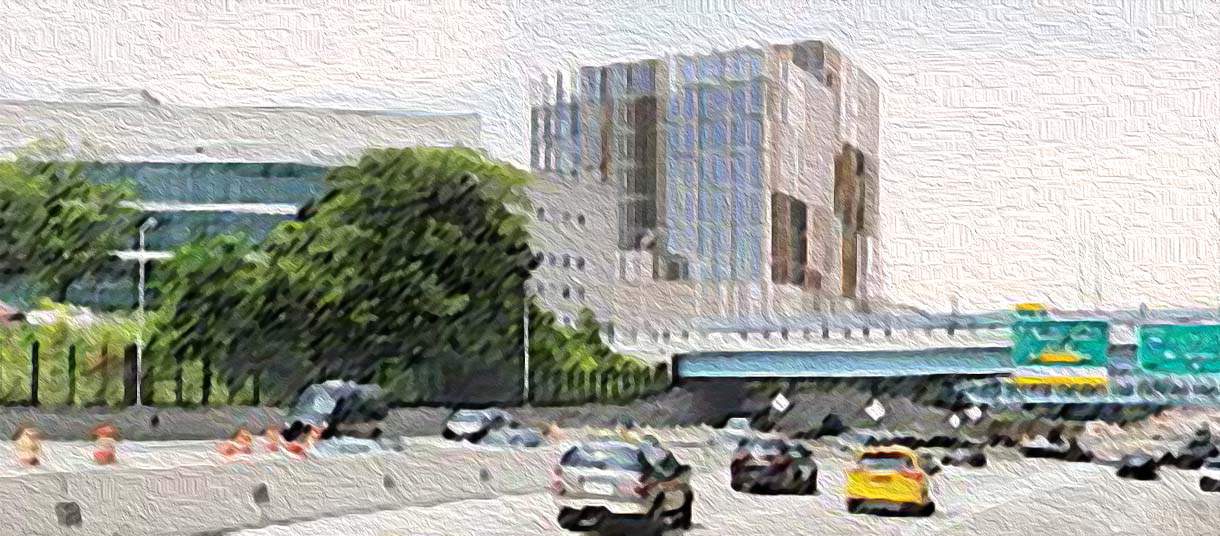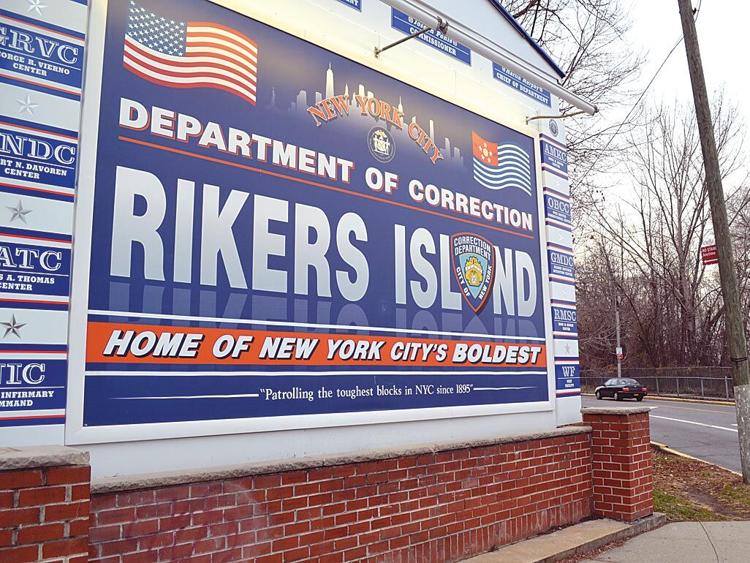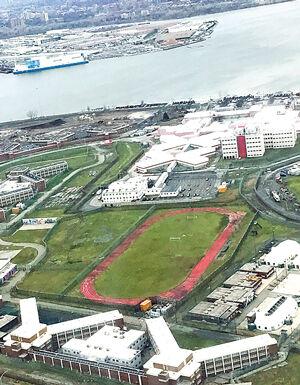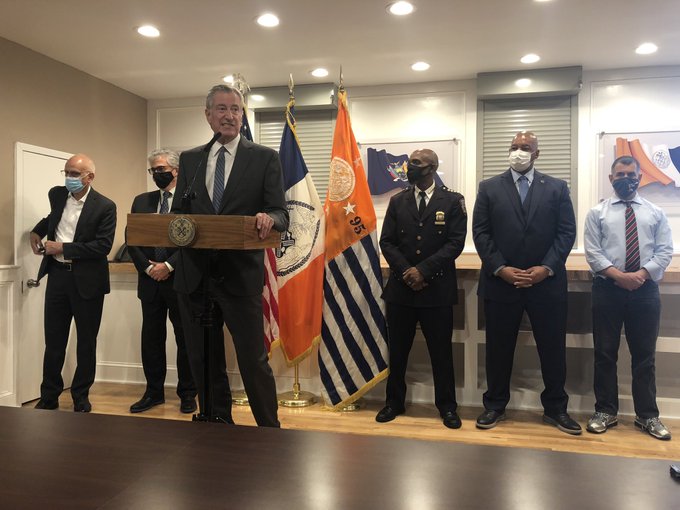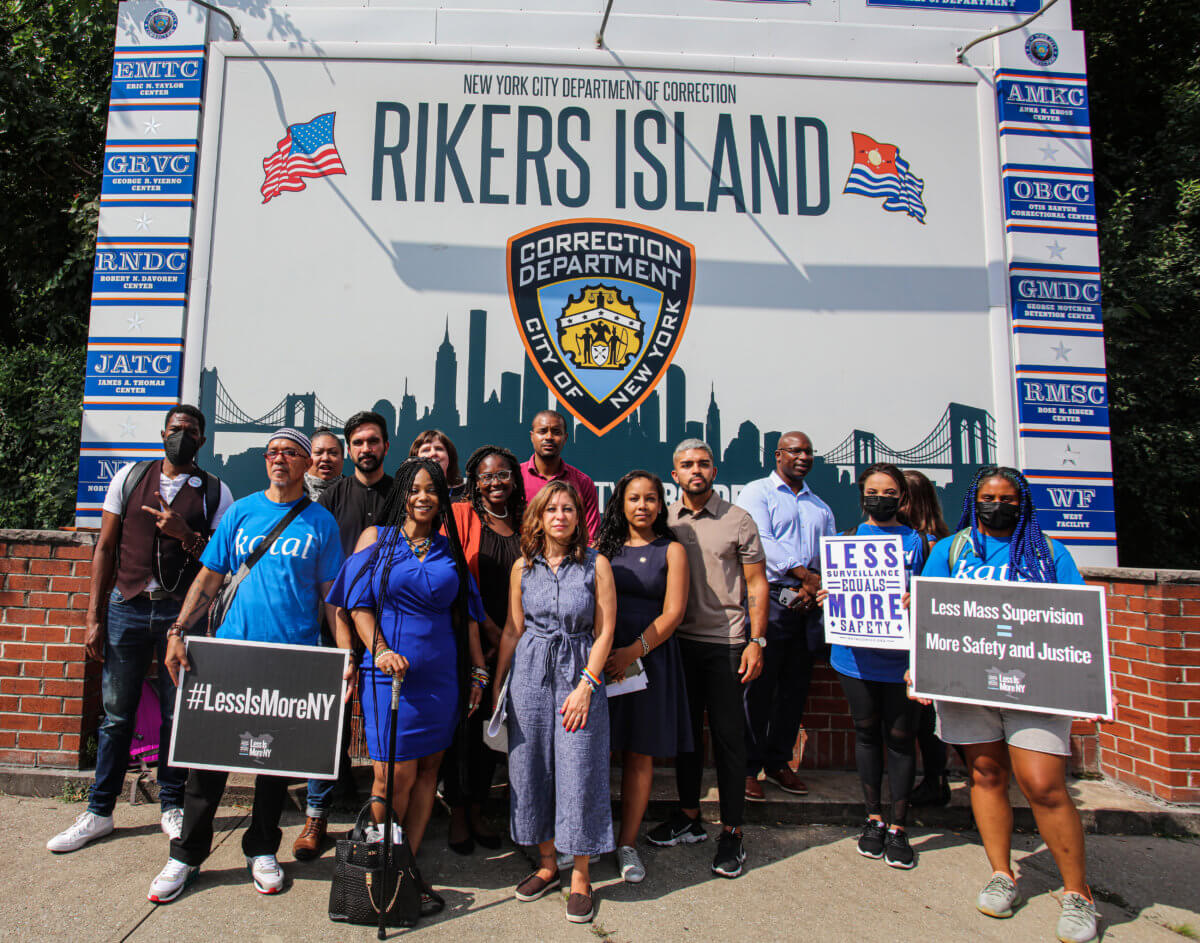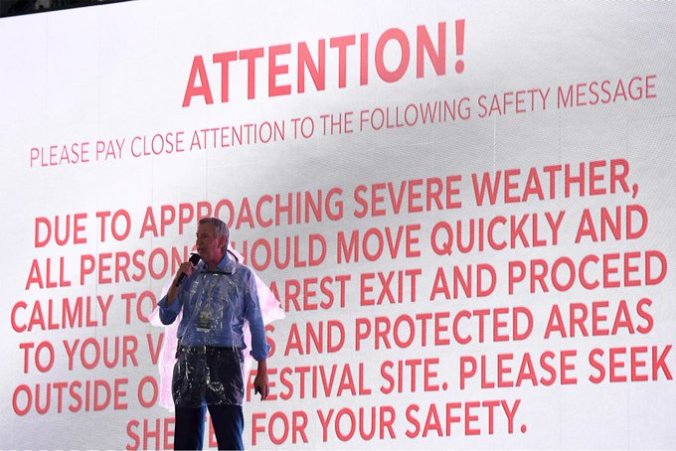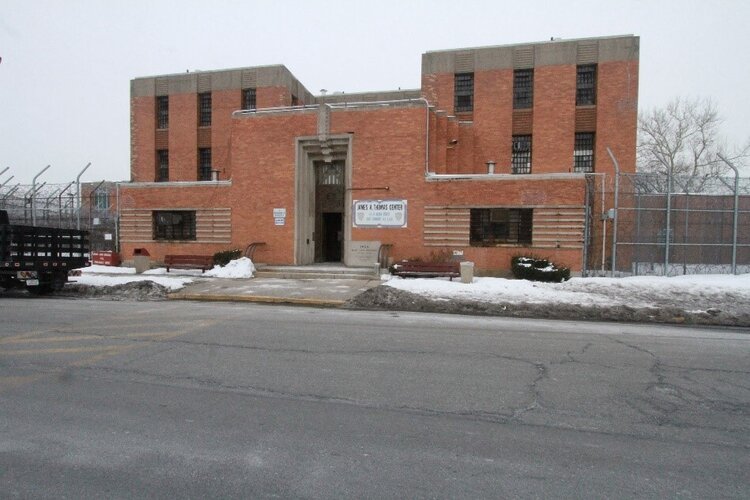
The Adams administration is adamant it’s not on track to close Rikers Island jails by a legally mandated 2027 deadline — but meanwhile it’s detailing how to turn the island into a hub for renewable energy and greener public works.
On Monday, the same day Mayor Eric Adams’ budget director, Jacques Jiha, declared to the City Council that “We know it’s not going to happen by 2027,” two city entities delivered reports ordered up by the Council declaring it feasible to build a new wastewater treatment plant on the island, along with solar, battery storage and new equipment to feed offshore wind power into the electric grid.
The reports came as a result of the Renewable Rikers Act, signed into law by former Mayor Bill de Blasio, which seeks to reinvent Rikers as a hub for renewable energy.
But for the city to realize the multi-billion-dollar green vision for Rikers Island, the jail complex on Rikers Island must shutter. That rests on the completion of four borough-based jails, at a cost that Jiha testified has now reached $12 billion.
Another impediment to closing: the current Rikers population of more than 6,200 is significantly higher than the planned 4,160 capacity of the borough jails. Outside criminal justice experts say the Adams administration can and should do more to divert people from jails while awaiting trial.
But Adams continues to cite the size of the jail population as a reason to be skeptical Rikers will close by 2027 and has called for a “Plan B.”
For backers of Renewable Rikers, the reports are a bright spot at a difficult time for those pressing to close the notorious jails.
The reports “reaffirm we can move forward with Renewable Rikers,” said Councilmember Sandy Nurse (D-Brooklyn), chair of the Council Committee on Criminal Justice. “Given the deplorable conditions on Rikers, the cuts to programs that get people out of Rikers and now more announced delays, it is a good thing there was something to show.”
Darren Mack, co-director of Freedom Agenda at the Urban Justice Center and an organizer of the campaign to close Rikers, described frustration at a climate of disinvestment in city communities that rely on government for services and opportunities.
He says he would like to see the Adams administration “restoring all these proposed cuts to all the city programs and agencies that vulnerable people and marginalized communities rely upon,” in addition to “making investments on top of that…with the construction of these facilities.”

